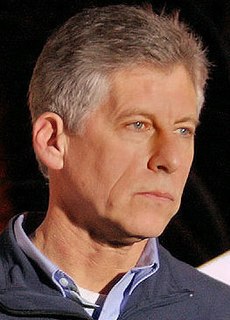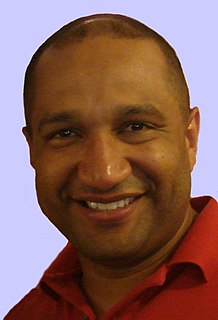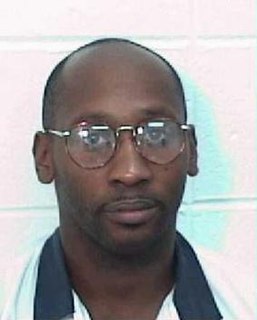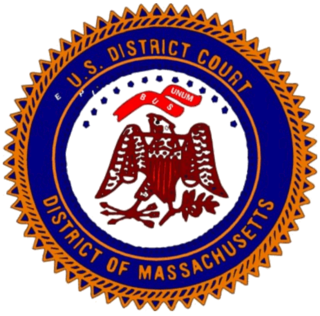Murder case
Background
On November 15, 2004, Peter Porco, a 52-year-old state Appellate Division court clerk, was found dead of massive head injuries in his home in Delmar, New York. His wife Joan Porco (née Balzano), a children's speech pathologist, [1] was discovered lying in the couple's blood-drenched bed with severe head trauma; she survived the attack, but lost one eye and part of her skull and suffered severe facial disfigurement.

Delmar is a hamlet in the Town of Bethlehem, in Albany County, New York, United States. It is a suburb of the neighboring city of Albany. The community is bisected by NY Route 443, a major thoroughfare, main street, and route to Albany.
Speech-Language Pathology is a field of expertise practiced by a clinician known as a speech-language pathologist (SLP) or a speech therapist. SLP is considered a "related health profession" or "allied health profession" along with audiology, behavior analysis, optometry, occupational therapy, clinical psychology, physical therapy, and others.
An axe belonging to the family, which was used in the attack, was found in the couple's bedroom. Bethlehem Police soon focused their investigation on Christopher Porco, the younger of the couple's two sons, who was a student at the University of Rochester 230 miles away. Christopher Porco was at the University of Rochester when his parents were discovered. He later said he learned of the attack from a reporter. He returned to Delmar that evening.

Bethlehem is a town in Albany County, New York, United States. The town's population was 33,656 at the 2010 census. Bethlehem is located immediately to the south of the City of Albany. Bethlehem includes the following hamlets: Delmar, Elsmere, Glenmont, North Bethlehem, Selkirk, Slingerlands, and South Bethlehem. U.S. Route 9W passes through the town. The town is named after the biblical Bethlehem.

The University of Rochester is a private research university in Rochester, New York. The university grants undergraduate and graduate degrees, including doctoral and professional degrees.
Prosecution
In late November 2004, outgoing Albany County District Attorney Paul Clyne convened a grand jury to hear testimony implicating Christopher Porco in the murder. Those who were reported to have testified in the closed-session hearing included Porco's friends from college, a university campus safety officer, and a former girlfriend. The grand jury would field more testimony before handing up an indictment against Christopher in November 2005, one year after the attacks. [2]

Albany County is a county in the state of New York, in the United States. Its northern border is formed by the Mohawk River, at its confluence with the Hudson River, which is on the east. As of the 2010 census, the population was 304,204. The county seat is Albany, the state capital of New York. As originally established by the English government in the colonial era, Albany County had an indefinite amount of land, but has had an area of 530 square miles (1,400 km2) since March 3, 1888. The county is named for the Duke of York and of Albany, who became James II of England.
Paul Clyne was the District Attorney of Albany County, New York from January 2001 through December 2004. A graduate of Albany Law School, he spent about 14 years as an assistant district attorney, before he was tapped by local politicians to replace the retiring District Attorney, Sol Greenberg. He was defeated for re-election by David Soares, first in the Democratic Party primary election in September 2004, and then in the general election in November 2004, in which he ran on an independent line. After a stint teaching at the New York Prosecutors Institute, he went into private practice as a criminal defense attorney in 2007, with an office in Albany, New York.
A grand jury is a jury – a group of citizens – empowered by law to conduct legal proceedings and investigate potential criminal conduct, and determine whether criminal charges should be brought. A grand jury may subpoena physical evidence or a person to testify. A grand jury is separate from the courts, which do not preside over its functioning.
Burglaries
During the course of their investigation, authorities determined that Porco had a history of anti-social behavior that included burglarizing his parents' home. In 2005, Bethlehem Police detectives travelled to San Diego, California to retrieve a laptop computer that Christopher Porco had stolen from his parents in a break-in on July 21, 2003. Porco had sold the laptop on eBay. Police contended that eight months earlier, on November 28, 2002, Christopher staged a burglary at his parents' home in which he stole a Macintosh laptop computer and a Dell laptop computer. A camera reported missing from the burglary was recovered from the couple's front yard. One month before the attack, both Christopher and Johnathan Porco had their eBay accounts frozen because they shared the same Delmar address. Christopher had not sent several customers the items they had paid for from his account. During their investigation, prosecutors discovered that Christopher had posed as his own brother, sending emails to the customers falsely stating that his brother had died and was unable to deliver the items.

San Diego is a city in the U.S. state of California on the coast of the Pacific Ocean, approximately 120 miles (190 km) south of Los Angeles and immediately adjacent to the border with Mexico. With an estimated population of 1,419,516 as of July 1, 2017, San Diego is the eighth-largest city in the United States and second-largest in California. It is part of the San Diego–Tijuana conurbation, the second-largest transborder agglomeration between the U.S. and a bordering country after Detroit–Windsor, with a population of 4,922,723 people. The city is known for its mild year-round climate, natural deep-water harbor, extensive beaches, long association with the United States Navy, and recent emergence as a healthcare and biotechnology development center.

eBay Inc. is an American multinational e-commerce corporation based in San Jose, California that facilitates consumer-to-consumer and business-to-consumer sales through its website. eBay was founded by Pierre Omidyar in the autumn of 1995, and became a notable success story of the dot-com bubble. eBay is a multibillion-dollar business with operations in about 30 countries, as of 2011. The company manages the eBay website, an online auction and shopping website in which people and businesses buy and sell a wide variety of goods and services worldwide. The website is free to use for buyers, but sellers are charged fees for listing items after a limited number of free listings, and again when those items are sold.

The Macintosh is a family of personal computers designed, manufactured and sold by Apple Inc. since January 1984.
Burglar alarm
Trial testimony showed that on November 15, 2004, the Porco family's secret code was used to disable the security system at their home. Hours later, a telephone line outside the Porco home was cut. Prosecutors asserted that Christopher Porco disabled the alarm and later cut the phone line to make the invasion of his parents' home appear to be a burglary. [3]
Financial problems and forgeries
While away on a trip to England in March 2004, Christopher received an email from Joan Porco's account admonishing him for failing classes at Hudson Valley Community College in Troy, NY. In the message, Joan and Peter complained to their son, "You just left and (we) can't believe (our) eyes as I look at your interim grade report. You know what they say, 'Three strikes and you're out.' Explain yourself." The email's subject header was "Failing Grades-You did it again!" Several days later, Christopher replied in a message to his father. Blaming the community college's office of registrar, he wrote, "[B]ut obviously they are incorrect...My lowest grade that I got on anything was a B on a physics test...Don't jump to conclusions, I'm fine." Porco earned readmission to the University of Rochester with a forged transcript from HVCC. Judge Berry refused to allow prosecutors to use the forged transcripts as evidence in their criminal case against Christopher Porco.
Prior to the attack, there had been tension between Christopher Porco and his parents about money, including over loans Christopher had taken out to pay his tuition and to finance a new Jeep Wrangler. Following the Fall 2003 semester, University of Rochester officials had forced Christopher Porco to withdraw because of poor grades. When he was readmitted the following year, he took out a loan for $31,000 to pay his expenses, forging his father's name as a cosignatory. Unbeknownst to his parents, Christopher was attempting to pay his Fall 2004 tuition with the loan money. Earlier in the fall, he falsely told his parents that the University of Rochester was covering his tuition because a professor had misplaced his final exam from the previous fall semester.
Two weeks before his murder, Peter had confronted his son about his dishonesty in an email: "Did you forge my signature as a co-signer? ... What the hell are you doing? You should have called me to discuss it ... I'm calling Citibank this morning to find out what you have done and am going to tell them I'm not to be on it as a co-signer."
The following day, Peter Porco was notified that Christopher had also obtained a line of credit from Citibank to finance the Jeep Wrangler, again using his father's name as a cosignatory. Peter once again wrote to his son, who had not answered his parents' phone calls in weeks: "I want you to know that if you abuse my credit again, I will be forced to file forgery affidavits in order to disclaim liability and that applies to the Citibank college loan if you attempt to reactivate it or use my credit to obtain any other loan." The email concluded: "We may be disappointed with you, but your mother and I still love you and care about your future."
Johnathan Porco
Porco's brother, Johnathan, testified at his trial. According to the Albany Times Union, Johnathan's testimony influenced the jury; his demeanor toward his brother was "icy", and he described their relationship as "strained". [4]
Porco's character
Police contended that Christopher Porco's behavior was consistent with a diagnosis of psychopathy or sociopathy, two similar though not identical disorders characterized by pathological deception, scamming and defrauding others, and lack of conscience or remorse. For example, Porco lied to obtain both a car and tuition payments. He also lied to fellow students to make it appear that he came from a wealthy family with oceanfront homes. [5] Michele McKay, a law clerk who worked with Peter Porco, said he had described his youngest son as a sociopath.
Professor Frank Perri has argued that police interviews with Christopher Porco were seriously flawed because police questioning procedures seemingly failed to account for Porco's probable psychopathy. [6]
Porco's movements
Christopher Porco told investigators that on the night of November 14, he retired to a dormitory lounge to sleep and awoke the following morning. The police theory was that he drove more than three hours to Albany in early hours of November 15 to attack his parents. [7] A New York State Thruway toll collector outside Rochester said a yellow Jeep Wrangler with large tires passed through his station at about 10:45 p.m. on November 14, and a collector in Albany recalled the "excessive speed" of a yellow Jeep Wrangler approaching the toll plaza shortly before 2 a.m. on November 15. [8]
Four security cameras at the University of Rochester recorded a yellow Jeep Wrangler like Porco's leaving the campus at 10:30 p.m. on November 14 and returning at 8:30 a.m. on November 15, this being the period during which prosecutors claim the Porcos were attacked. [9]
A neighbor of the Porco family later testified at trial that he saw Porco's yellow Jeep in the family's driveway on the evening of the attack. [10] Also, University of Rochester students testified that they did not see Porco sleeping in a dormitory lounge on the night of the attack. [11]
Veterinary clinic job
Porco's employer, veterinarian John Kearney, testified at trial that Porco had been trained in cleaning up after animal surgeries. After the trial, jurors commented that this testimony helped to explain the fact that police did not find blood in Porco's vehicle after the attack. [4]
Witness identification
Christopher Bowdish, a Bethlehem Police detective, stated that, as medical personnel attended to Joan Porco at her home, he took a moment to ask her whether she could identify her attacker. Bowdish said that when he asked Joan if a family member had committed the crime, Joan used her head to indicate "yes". Bowdish has maintained that when he asked her whether it had been her older son Johnathan, a Naval officer stationed in South Carolina, she shook her head to indicate "no". However, when Officer Bowdish asked if her son Christopher was responsible, she was said to have nodded her head up and down, indicating "yes". She also answered in similar ways to other separate questions. [12]
After Joan Porco emerged from a medically induced coma, she stated that she was unable to remember the attack and asserted that she believed her son Christopher to be innocent. [13] During videotaped testimony submitted to the grand jury in December 2004, Joan testified about her family, but did not identify her son as an attacker. Nine months later, she wrote a letter for publication in the Albany Times Union in which she urged authorities to leave Christopher alone and "to search for Peter's real killer or killers, so that he can rest in peace and my sons and I can live in safety."
Defense arguments
Defense attorney Terence Kindlon emphasized that the Bethlehem Police Department had no physical evidence linking Christopher Porco to the attack on his parents. No fingerprints were recovered from the fire ax found at the scene of the crime.
In statements to the press and criminal proceedings, Kindlon suggested that the Bethlehem Police Department had made Christopher Porco's guilt a foregone conclusion. During his opening remarks to jurors on June 27, 2006, Kindlon described the Bethlehem Police as unfamiliar with a serious crime investigation, describing them as a department "that chases skateboarders away from the 7-11 ...This is not the FBI."
Kindlon's co-counsel and wife Laurie Shanks maintained that police had overlooked the possibility that Peter Porco's death was the result of retaliation against his uncle Frank Porco, a captain in the Bonanno crime family in New York City. Frank Porco had served two years in prison for loansharking and extortion, although Shanks incorrectly told jurors that he had been indicted for his involvement in a murder. Shanks noted that Frank Porco's nickname with the mob was "The Fireman", which could have had something to do with the type of murder weapon found, a fire ax. He had served in the New York City Fire Department.
Trial, conviction, and sentencing
The Porco trial began on June 27, 2006. [14] The trial was held in Orange County because of intense media coverage in the Albany area.
On August 2, 2006, the prosecution completed its case against Porco, and the defense's case, which was much briefer, began. [15]
On the morning of August 10, 2006, the jury began deliberations. Later that day, Porco was found guilty of second degree murder and attempted murder. [16]
On December 12, 2006, Judge Jeffrey Berry sentenced Porco to 50 years to life on each count, totaling a minimum of 50 years in prison. Judge Berry was quoted as saying, "I fear very much what happened in the early morning hours of November 15 is something that could happen again." [17] Porco will be eligible for parole in December 2052. [18]
Aftermath
Porco is incarcerated at Clinton Correctional Facility. [19] Porco appealed his conviction to the Appellate Division, Third Department and to the New York Court of Appeals, but both courts rejected his appeals. [20] [21]
The case was shown in an episode of ‘’Forensic Files’’.
In 2006, the Porco case was the subject of an hourlong episode of CBS's 48 Hours. [22] In 2013, Lifetime aired a movie entitled Romeo Killer: The Chris Porco Story; [23] Porco sued in an attempt to block the release of the movie. [24]














